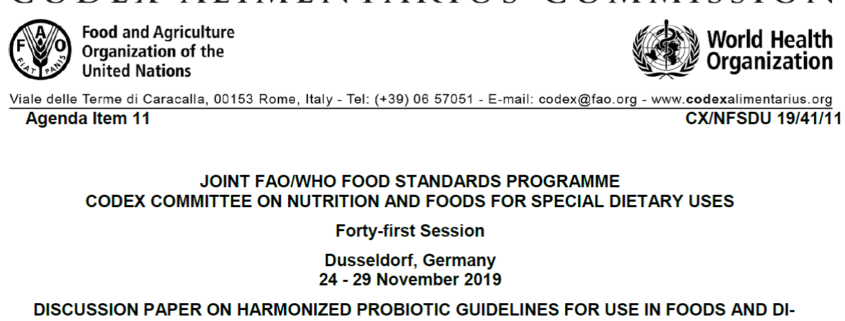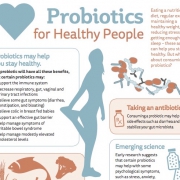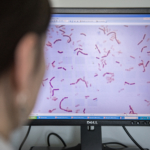Harmonized Probiotic Guidelines to be discussed at Codex Alimentarius meeting November 24 – 29
By Mary Ellen Sanders PhD, Executive Science Officer, ISAPP
In 2017, the International Probiotics Association (IPA) proposed that Codex Alimentarius consider the topic of global harmonization of probiotics, and Argentina offered to propose an approach. The final proposal developed by Argentina is here.
This set into motion activities among many stakeholders that led to a final proposal, to be discussed at the Joint FAO/WHO Food Standards Programme, Codex Committee on Nutrition and Foods For Special Dietary Uses, Forty-first Session, Dusseldorf, Germany, being held 24 – 29 November 2019. The agenda for this meeting includes “Harmonized Probiotic Guidelines for Use in Foods and Dietary Supplements”, agenda item #11.
ISAPP has long championed the need for the term ‘probiotic’ to be used on product labels only when the scientifically recognized definition is met. In June 2018, ISAPP convened a large group of industry and academic scientists, chaired by Profs. Seppo Salminen (Finland), Yuan Kun Lee (Singapore), and Gabriel Vinderola (Argentina), to discuss global harmonization. Prof. Vinderola later served as a member of the Argentinian committee that developed the proposal now under consideration. From this discussion group, a white paper “ISAPP position statement on minimum criteria for harmonizing global regulatory approaches for probiotics in foods and supplements” was prepared, describing the minimum criteria for use of the term ‘probiotic’. These outputs frame an overall position of ISAPP on this issue: any global regulations should impose only the minimum criteria necessary to ensure truthful product labeling.
Issues such as requiring specific safety tests, stipulating specific in vitro or animal studies, or expecting manufacturers to automatically re-conduct clinical trials when changing delivery matrices, will serve to inhibit innovation and impose expensive requirements that may not be necessary.
Although probiotics can be considered unique in that they are live microorganisms, their use as dietary ingredients is not substantively different from other ingredients. Every ingredient needs specific analytical techniques and has specific requirements for identity, purity, and stability. So if truth in labeling can be assured regarding proper commercial use of the term ‘probiotic’, there may not be a need for carved-out global regulations on probiotics.
The position of the United States on this agenda item is: “The United States is still reviewing the discussion paper and has not formed a position at this time. We note however that in our view this work is lower in priority than proposed work on nutrient profiles.”















